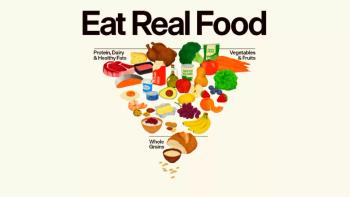
Survey reveals teens' top caffeine sources and parental concern
A recent poll reveals that teens primarily consume caffeine through soda, tea, coffee, and energy drinks, with parents expressing concern about the health risks associated with excessive intake.
A recent poll revealed the caffeine consumption habits of teenagers and the concerns of their parents. The survey, conducted by the C.S. Mott Children’s Hospital National Poll on Children’s Health, targeted parents of children aged 13-18 years, revealing that a significant number of teens regularly consume caffeine, primarily through soda, tea, coffee, and energy drinks.
According to the results, soda is the most common source of caffeine among teens, with 73% of parents reporting its consumption. Tea and coffee follow at 32% and 31% respectively, and 22% of parents say their children drink energy drinks. Most children consume caffeine at home (81%), but they also consume while dining out (43%), with friends (35%), and at school (25%).
Nearly a quarter of parents reported their child consumes caffeine on most or all days of the week, with 9% drinking caffeine daily and 14% doing so 4 to 6 days a week. This habit is more prevalent among older teens (16-18 years) compared to younger ones (13-15 years), at 14% versus 6%. The primary reasons cited for caffeine consumption include the presence of caffeine in favorite products (43%) and peer influence (23%). Parents also reported believing their teens use caffeine to stay awake (18%), manage early school start times (16%), or aid with studying (13%).
Meanwhile, 74% of parents report their teens consume caffeine less frequently (0-3 days per week). Of these families, 42% avoid keeping caffeinated drinks at home, 29% of teens are trying to maintain a healthy lifestyle, and 11% avoid caffeine to prevent sleep disruption.
Most parents reported feeling confident identifying when their teen consumes too much caffeine (66%) and understanding which products are highly caffeinated (61%). However, only 57% of parents regularly check caffeine amounts on product labels. Despite the risks of high caffeine intake, estimating a teen’s actual caffeine consumption remains challenging due to the variety of products containing caffeine, including some sources like snack bars and over-the-counter medications.
While caffeine is known to stimulate the brain and nervous system, enhancing alertness and energy temporarily, excessive consumption can lead to adverse effects such as mood swings, sleep disturbances, headaches, and heart palpitations.
Currently, the FDA states that 400 mg of caffeine per day for healthy adults is “not generally associated with dangerous effects.” However, due to insufficient evidence, the FDA has not given guidance for teens.
The American Academy of Pediatrics advises against caffeine consumption for children and adolescents, suggesting a limit of 100 mg per day. However, according to the results of the poll, 1 in 3 parents thought the recommended daily limit was higher.
The poll also highlights that 67% of parents consume caffeine regularly, with a third having attempted to reduce their intake. Similarly, 16% of parents noted their teen has tried to cut back on caffeine.
The report concluded by encouraging parents to discuss the risks of excessive caffeine intake with their teens and explore non-caffeinated alternatives together. Additionally, involving health care providers can provide teens with professional guidance and strategies to reduce caffeine dependency safely.
Reference:
Parents asleep on teen caffeine consumption? National Poll on Children’s Health. Accessed May 21, 2024. https://mottpoll.org/reports/parents-asleep-teen-caffeine-consumption
Newsletter
Access practical, evidence-based guidance to support better care for our youngest patients. Join our email list for the latest clinical updates.








